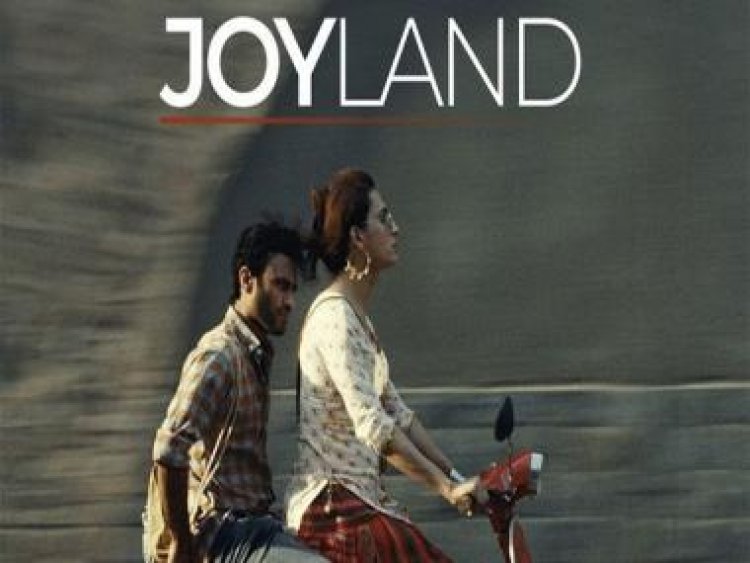Joyland movie review: Beautifully told tale of soul-crushing patriarchy and LGBTphobia in Lahore
Joyland movie review: Beautifully told tale of soul-crushing patriarchy and LGBTphobia in Lahore

Cast: Ali Junejo, Rasti Farooq, Alina Khan, Sarwat Gilani, Salmaan Peerzada, Sohail Sameer, Sania Saeed
Director: Saim Sadiq
Language: Urdu
In the opening moments of Saim Sadiq’s Joyland, Haider (Ali Junejo) plays with his three nieces who warn him that their brother will rescue them from his teasing. The boy, we soon learn, is yet unborn. Their heavily pregnant mother Nucchi’s water breaks seconds later, and she calmly instructs everyone present about what to do while
Minutes thereafter, Nucchi (Sarwat Gilani) is in tears at a hospital, while her husband Saleem (Sohail Sameer) asks a staffer how they have had another daughter
If Joyland was not so widely known by now, it would be easy to mistake it for Indian. The languages the characters speak, merged with the Rana family’s desperation for a son and the soul-crushing patriarchy and LGBTphobia pervading their lives make them indistinguishable from India’s socio-political reality. The setting, however, is Lahore, the cast and the filmare Pakistani
Joyland has been the toast of festivals since its global premiere at Cannes 2022, where it won two awards. It is Pakistan’s entry for Oscars 2023. Joyland has its India premiere this weekend. In these divisive times, it is worth pondering over the many commonalities between our two countries – our failings included – as are reflected in this wonderfully sensitive chronicle of friendship and love, longing and loneliness, sexuality, desire, enforced gender roles, and the everydayness behind which prejudice, repression and oppression thrive.
Joyland’s introductory scenes 
In Nucchi, we see the co-existence of progressive values and narrow-mindedness within the same individual – an amalgam that echoes the warm eq
The Ranas are just another son-crazed, conservati
For Indian viewers, Joyland is a perfect illustration of how the same scene can have a vastly different meaning when the context in which a story is told changes. India’s most high-profile film industry, the Hindi industry a.k.a. Bollywood, has in the past eight years produced a steady trickle of films that have acted as purveyors of Islamophobia. Animal slaughter and meat consumption have been used in some of them to perpetuate a stereotype of Muslims – a minority in India – as a blood-thirsty, violent lot (for the record, contrary to propaganda, a majority of Indians of all religious backgrounds, including Hindus, are meat eaters). In Joylandthough, a film from Muslim-dominated Pakistan, a scene involving the killing of a goat is deployed to indict patriarchy. This is not judgement being passed by majoritarian forces against a minority group; it is a call for introspection within the majority community itself. 
The extreme maturity with which Saim handles tricky
Among the many things to love about this film is its view of Biba as an individual whose gender identity is crucial but does not solely and entirely define her. Equally important is its refusal to gloss over Haider’s and Nucchi’s failings or to villainise either. He is constantly fearful and we see why. He does not speak up for anyone including himself. He is selfish with Mumtaz and with Biba who has remarkable clarity about what she wants for herself. Mumtaz becomes an innocent victim of his late awakening in a homophobic, patriarchal society that enchains both of them. Through Nucchi we also s
Like Haider, Mumtaz is crumbling. Nucchi too is under pressure. Yet some of Joyland’s most joyous scenes – including one at an amusement park from which the film gets its name – involve these two women. South Asian filmmakers from dominant social groups rarely get this: that the oppressed are not always weeping, that the marginalised find ways to smile. 
Joyland brims with internalised turbulence, social insights and the entire spectrum of human emotions, yet Saim, Jasmin and DoP Joe Saade also fill it with poetry and moments of quietude. The film’s rich tapestry of emotions is enlivened by a striking use of light, shade and darkness, from the Rana home’s dim rooms to a beauty parlour and later a dance show lit up entirely by cellphones, and the burst of brightness when the camera captures a humbling visual of the sea.
The cast are uniformly brilliant. The choice of Alina Khan, a transgender actor, is uncommon in the subcontinent. Here in India, for one, the 2018 Malayalam film Aabhaasam, the year-old Bhima Jewellery ad and 2022’s Gargi (Tamil) are rare instances of trans artistes playing trans characters. The vulnerability and starry airs that Alina brings to Biba, along with Ali Junejo and Rasti Farooq’s nuanced portrayal of fragility round off Joyland’s all-round excellence.
Rating: 4.75 (out of 5 stars)
Joyland has its India premiere at the ongoing Dharamshala International Film Festival. It will be released in theatres in Pakistan on November 18, 2022.
Anna M.M. Vetticad is an award-winning journalist and author of The Adventures of an Intrepid Film Critic. She specialises in the intersection of cinema with feminist and other socio-political concerns. Twitter: @annavetticad, Instagram: @annammvetticad, Facebook: AnnaMMVetticadOfficial
Read all the Latest News, Trending News, Cricket News, Bollywood News, India News and Entertainment News here. Follow us on Facebook, Twitter and Instagram.
What's Your Reaction?

























































